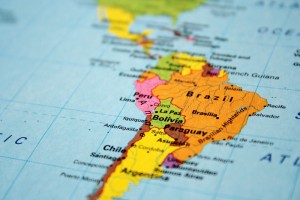FCPAméricas Blog
Best Practices for FCPA Investigations in Latin America
2.19.2014
 Oftentimes, an FCPA investigation will require obtaining information that is entirely outside of the United States. Because of this, local considerations are important. This post highlights four practical steps that companies can take to maximize the efficiency of their FCPA investigation in Latin America and minimize collateral consequences.
Oftentimes, an FCPA investigation will require obtaining information that is entirely outside of the United States. Because of this, local considerations are important. This post highlights four practical steps that companies can take to maximize the efficiency of their FCPA investigation in Latin America and minimize collateral consequences.
1. Capture local sources of information. When conducting an internal investigation, there are many sources of information to look to when determining whether or not certain acts occurred. Some are local. For example, when reviewing corruption related to public procurement – an area of concern throughout Latin America – it is helpful to consult public tender records. Many Latin American countries make available significant public records about procurement processes, including information about development of specifications, bidders (and in what order they placed their bids), reasons for the purchasing decision, disqualification of bidders, prices, and appeals by participants. Comparing information from public records with emails, other documentation, and interviews allows the investigation team to identify red flags (e.g., a company that drafts the technical specifications of a RFP before it is made publicly available) that can suggest corrupt behavior.
2. Be aware of local labor laws. In many countries in the region, local labor laws greatly favor employees. As a result, interviews need to be conducted carefully Aggressive interview techniques should be avoided to reduce the risks of punitive damage claims. While in the United States employees might be disciplined or terminated for failing to cooperate, in Latin America the expectations are different. In many jurisdictions, Latin American employees cannot be terminated for cause for refusing to cooperate in an internal investigation.
The investigation team should also be aware of specifics related to local labor laws. In certain countries, an employer has a limited amount of time to discipline or terminate its employees after discovering acts of wrongdoing. In Mexico, for example, employers must take action within 30 days of discovering the incident, or else they waive their rights to rely on the incident as justification for discipline or termination for cause. Similarly, the employer’s right to put an employee on leave in Brazil is subject to various formalities. Involvement of local counsel from the outset of the investigation can help reduce such risks.
3. Consider local privacy laws. Oftentimes, emails and other electronically stored documents are the most important sources of information. In general, Latin American countries allow companies to access corporate emails of their employees, as well as to monitor the use of corporate devices. However, to do so, companies are usually required to give express notice to employees about the absence of computer privacy and the limits of what employees can do. Lack of such notice, may negatively impact the ability of the company to review such documents and use them.
4. Determine the best time to issue a hold notice. Preservation of relevant documents (physical and electronic) as early as possible is one of the most important steps for a credible investigation. This often means issuance of a timely hold notice to relevant employees. Companies conducting internal investigations in Latin America should remember that, as soon as they issue holds, it can trigger massive loss of data. Records might be wiped out and laptops might “disappear” under suspicious circumstances. Considering this, it can be advisable to issue the hold notice after relevant documents and data have been preserved or simultaneously to the preservation efforts.
The opinions expressed in this post are those of the author in his or her individual capacity, and do not necessarily represent the views of anyone else, including the entities with which the author is affiliated, the author`s employers, other contributors, FCPAméricas, or its advertisers. The information in the FCPAméricas blog is intended for public discussion and educational purposes only. It is not intended to provide legal advice to its readers and does not create an attorney-client relationship. It does not seek to describe or convey the quality of legal services. FCPAméricas encourages readers to seek qualified legal counsel regarding anti-corruption laws or any other legal issue. FCPAméricas gives permission to link, post, distribute, or reference this article for any lawful purpose, provided attribution is made to the author and to FCPAméricas LLC.
© 2014 FCPAméricas, LLC
Post authored by Carlos Henrique da Silva Ayres, FCPAméricas Contributor



 Comments
Comments
February 19th, 2014 at 2:11 pm
Hi, Carlos. Your article hit on some very key points that are often overlooked. I look forward to seeing you again soon!
February 19th, 2014 at 3:30 pm
[…] Best Practices for FCPA Investigations in Latin America by Carlos Ayres Published on FCPAmericas Blog […]
February 24th, 2014 at 12:03 am
Interesting and useful article.